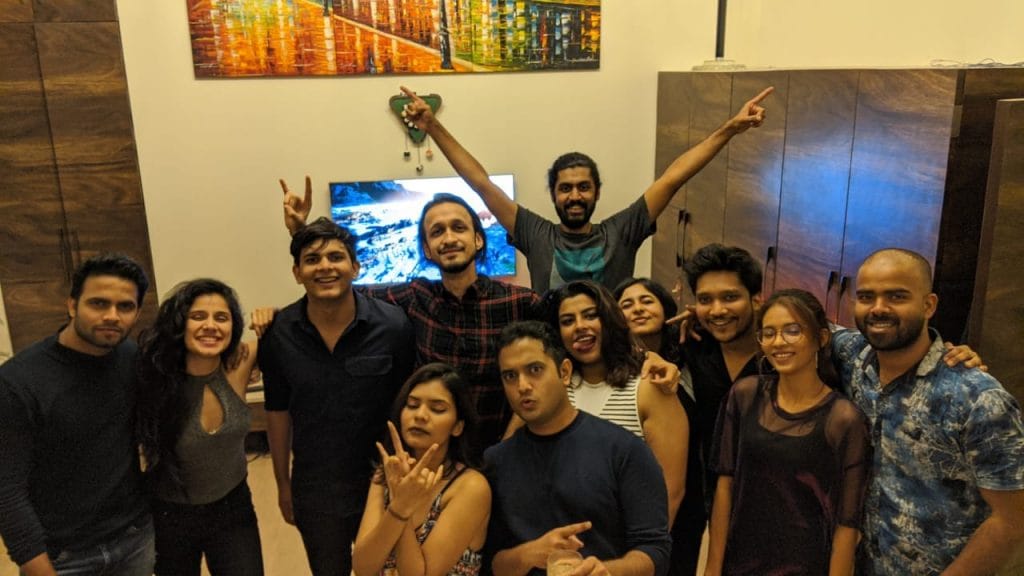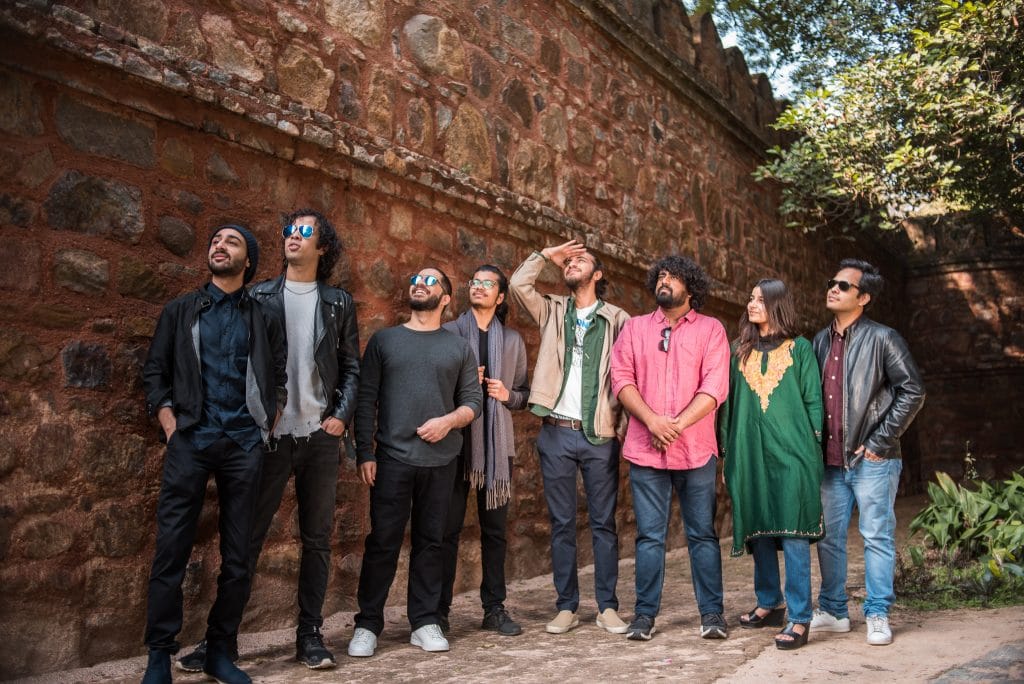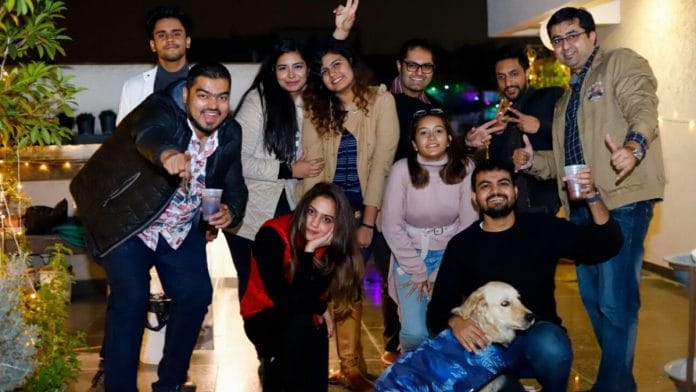Shashwat Verma, a fresh graduate in Australia, made his first friend in Brisbane by striking up a conversation at a grocery store. But when he tried to do the same at Haiko, a supermarket in Mumbai’s Powai, he was met with cold shoulders and wary eyes.
Verma tells ThePrint that was when he realised, as a young, “small town boy” in the big city, how “closed” India’s culture is. He struggled for at least six more months before he made a single friend outside of work.
It all changed for him in early 2017, when he attended a housewarming party at a colleague’s house. “Everyone was just open to talking. For the first time since I landed in Mumbai, I felt a sense of community.”
This led Shashwat to come up with Partyherd (@partyherd_ on Instagram) in 2018. The online community aims to help people meet new people. Today, Partyherd has more than 50 hosts who open their doors to strangers in Mumbai’s suburban areas of Bandra, Powai and Andheri. Shashwat registered Partyherd as a company last year.
Suyash Sinha has a similar story. Having lived in 13 cities across India, the IIM-Calcutta graduate has friends scattered across the subcontinent. To make some new friends in Delhi in 2016, he along with a friend decided to throw a party and invite friends of friends of friends. It was such a hit that after clean-up they created a Google document through which people planned house parties, often attended by people they didn’t know beforehand. They had 500 signups in a single day.
Seeing the potential of the idea, Sinha co-founded MyScoot in December 2017, along with Sidharth Rawat. Headquartered in Gurugram, MyScoot is an online platform aimed at helping people meet at events including house parties, high teas, brunches, jam sessions, board game nights and open mic nights.
Last year, the platform raised close to 1.8 million dollars in funding.
According to Sinha, it’s loneliness that attracts people to the concept of partying with strangers. “Everywhere on social media, we’re just trying to impress people, everyone is just looking for a place to express themselves, and that’s what we give.”
There is also another aspect of it. With work opportunities and increased independence, people are moving out of the parental home at a much younger age, and not just as a consequence of marriage. This also explains why Mumbai, which has long been India’s major ‘working city’, Bengaluru and Gurugram are ideal breeding grounds for these kinds of mixers as they encourage and enable independent living. Add to this the fact that most people spend upwards of nine hours a day at work, factor in commutes and running a house and there isn’t much left. The little free time one typically has goes in catching up with existing friends and family, so where is the time to meet new people?
This, then, is the new way to party in India’s cities. It’s not about just going to a club and getting wasted. It’s about trying to find time, in an increasingly busy life, to do things one likes and meet some new people along the way.
Also read: Chief dazzling officer to chief depressed officer: Why chief digital officers often fail
A place to find love or a business partner
It goes beyond making friends, though. Young people striking out in the professional world for the first time also find these mixers useful in terms of networking. Bars and clubs are usually too loud, while restaurants and movie theatres don’t lend themselves to talking to people outside of one’s own companions.
“Unlike the West, in India you just don’t go and strike a conversation with someone at a bar,” notes Verma, who feels house parties are a more comfortable environment for people to network. Sinha notes that people who have met at MyScoot events have gone on to start companies together or found employment. Sinha failed to give any substantial examples.
It’s even better than something like Bumble Biz, which is the networking arm of what is otherwise widely just known as a dating app. With Bumble, one still has to reach out to individuals over a phone screen, while here, one meets, in person, a bunch of potential colleagues in one go.
And for Saniya Malhotra, a student at Mumbai’s Sophia College For Women, a house party full of strangers proved to be a safe space when she was grappling with her sexuality and sexual preferences. “I met this girl when I was still coming out and I had my first experience,” the economics student says.
The fact that one is surrounded by people who don’t know each other and have no context for each other leads to a certain freedom and shedding of inhibitions. With friends and family, one might be expected to be a certain way, but with strangers, there’s often less judgment, or less fear of it — even if things don’t go as planned, these aren’t people one would necessarily see again, after all.

A newer, kinder stage for artistes
It also works for the other side. Small, intimate house events provide a space not only for people to meet while watching a fun performance, but also give performers an engaged audience with whom they can interact freely.
Sachin Singhal, a sales professional in Gurugram, found an open mic night by a group called Artpromptu a refreshing experience. “Comedians, singers, poets — I got to see raw talent and meet new people.” He says the stage was an encouraging space for budding artists and the host took extra care to help them out. “I was pleasantly surprised to see the quality of art that night; it was intimate and raw and exceeded all my expectations.”
The idea of providing artistes with an attentive audience in a different yet safe space gave birth to Sofar Sounds in London, when founder Rafe Offer invited some friends for a gig in his house back in 2009. Sofar is now present in 447 cities around the world, including Mumbai, Bengaluru, Delhi, Chennai, Pune, Shillong, Dimapur, Hyderabad, Jaipur, Kochi and Imphal, as well as in Goa. It has hosted gigs by everyone from Damien Rice to Dhruv Visvanath.
For Delhi-based funk jazz band The Revisit Project, the experience of performing an intimate music gig with Sofar Sounds was humbling. “As a band, we took our music more seriously, because the audience took it more seriously,” saxophonist Abhay Sharma tells ThePrint.
He believes intimate gigs bring an artiste’s music to the forefront, instead of limiting it to the background over which people chat. “When we started playing, everyone just got up and started dancing.”
For an established band like The Revisit Project, or the budding artistes platformed by Artpromptu, intimate settings give them just the stage they need — a venue with a serious audience with properly set up sound and acoustics for the former and a non-judgmental, safe space to exhibit their talent for the latter.

Also read: Five things that will redefine the way you fly






